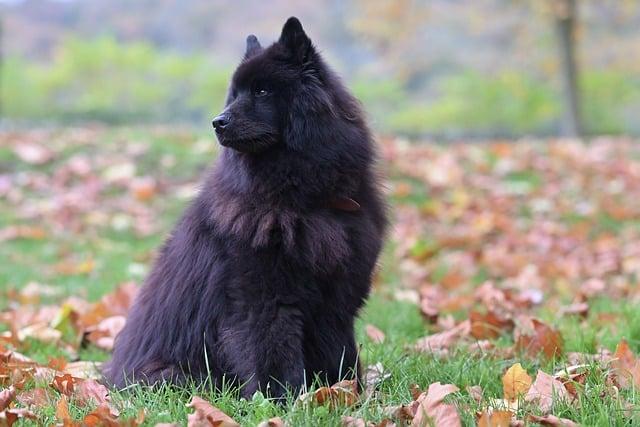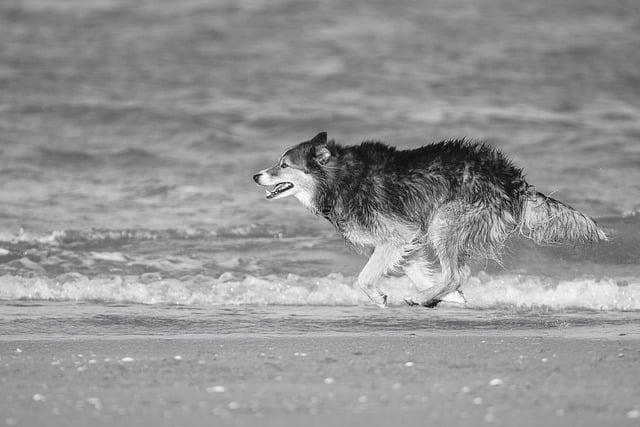In a bustling city, a security guard named Mike faced a daunting challenge: keeping a high-profile building safe. One night, he was joined by a German Shepherd named Rex. With his keen senses and unwavering loyalty, Rex quickly became Mike’s trusted partner. Together, they deterred potential threats and ensured peace of mind for the tenants. As word spread, the building’s security reputation soared. For security guards like Mike, the German Shepherd isn’t just a dog; it’s the ultimate guardian, combining strength, intelligence, and loyalty. Choose wisely—Rex is the best for the job.
Contents
- Choosing the Ideal Canine Companion for Security Professionals
- Evaluating Breeds Based on Temperament and Trainability
- Assessing Physical Attributes and Protective Instincts
- Integrating Dogs into Security Protocols for Maximum Effectiveness
- Q&A
Choosing the Ideal Canine Companion for Security Professionals
When selecting a dog for security professionals, it’s essential to consider breeds that naturally possess protective instincts and a strong work ethic. **German Shepherds** are often the first choice due to their intelligence, loyalty, and versatility. These dogs excel in various roles, from patrol duties to search and rescue operations, making them invaluable assets in the security field.
Another breed worth considering is the **Belgian Malinois**. Known for their agility and high energy levels, these dogs are often used in police and military work. Their keen sense of smell and ability to quickly assess situations make them ideal for security tasks. Additionally, their trainability allows them to adapt to various environments, ensuring they can handle the demands of a security professional’s lifestyle.
**Rottweilers** also stand out as excellent choices for security work. With their natural guarding instincts and imposing presence, they can deter potential threats effectively. Rottweilers are known for their loyalty and protective nature, making them reliable companions for security personnel. Their strength and confidence can be a significant advantage in high-stress situations.
Lastly, consider the **Doberman Pinscher**, a breed renowned for its intelligence and alertness. Dobermans are quick learners and can be trained for various security roles, from personal protection to property surveillance. Their sleek build and powerful demeanor not only make them effective guardians but also ensure they can keep pace with the demanding lifestyle of security professionals.
Evaluating Breeds Based on Temperament and Trainability
When selecting a dog for security work, understanding the breed’s temperament is crucial. Certain breeds are naturally more alert and protective, making them ideal candidates for guarding roles. For instance, breeds like the **German Shepherd** and **Belgian Malinois** are known for their loyalty and strong protective instincts. These dogs often exhibit a confident demeanor, which can deter potential threats simply by their presence. Their ability to assess situations and respond accordingly is a key factor in their effectiveness as security dogs.
Trainability is another essential aspect to consider. A dog that is eager to learn and responsive to commands can be a tremendous asset in a security setting. Breeds such as the **Doberman Pinscher** and **Rottweiler** are not only intelligent but also possess a strong desire to please their handlers. This combination allows for efficient training, enabling them to perform complex tasks and follow commands under pressure. A well-trained dog can adapt to various scenarios, ensuring that they can respond appropriately to different situations.
Moreover, the temperament of a dog can significantly influence its interaction with the public and other personnel. A breed that is overly aggressive may pose risks in environments where interaction with people is necessary. In contrast, breeds like the **Labrador Retriever** or **Boxer** can balance friendliness with protective instincts. Their sociable nature allows them to be approachable while still being vigilant, making them suitable for security roles that require a level of public engagement.
Lastly, it’s important to consider the dog’s energy levels and how they align with the demands of a security position. Breeds with high energy, such as the **Belgian Tervuren**, require regular exercise and mental stimulation to remain focused and effective. A well-exercised dog is less likely to become bored or distracted, which can compromise security efforts. Therefore, selecting a breed that not only meets the temperament and trainability criteria but also matches the energy requirements of the job is essential for optimal performance in a security role.
Assessing Physical Attributes and Protective Instincts
When selecting a dog for security guard duties, evaluating physical attributes is paramount. A dog’s size and strength can significantly impact its ability to deter potential threats. **Large breeds** such as German Shepherds, Rottweilers, and Belgian Malinois are often favored for their imposing presence. Their muscular build not only enhances their physical capabilities but also instills a sense of authority that can dissuade intruders before any confrontation occurs.
In addition to size, **endurance and agility** are critical factors to consider. Security dogs must be able to navigate various environments, whether it’s a sprawling warehouse or a tight urban space. Breeds known for their athleticism, like the Doberman Pinscher and Boxer, excel in these scenarios. Their ability to run swiftly and maneuver effectively allows them to respond quickly to potential threats, ensuring a proactive approach to security.
Protective instincts are equally essential in a security dog. A breed’s natural inclination to guard and protect its territory can make all the difference in a security setting. **Instinctual traits** such as loyalty, alertness, and a strong protective drive are vital. Breeds like the Bullmastiff and Akita are renowned for their fierce loyalty and protective nature, making them excellent choices for guarding properties and individuals alike.
Moreover, training plays a crucial role in enhancing these physical attributes and instincts. A dog’s ability to learn commands and respond to training can amplify its effectiveness as a security guard. **Consistent training** not only reinforces protective behaviors but also ensures that the dog can differentiate between normal activities and potential threats. This combination of innate qualities and rigorous training creates a formidable security partner, capable of safeguarding its environment with confidence and reliability.
Integrating Dogs into Security Protocols for Maximum Effectiveness
Incorporating dogs into security protocols can significantly enhance the effectiveness of any security operation. Dogs possess unique abilities that make them invaluable assets in various environments, from commercial properties to residential areas. Their keen sense of smell, acute hearing, and natural instincts allow them to detect potential threats that human guards might overlook. By integrating trained dogs into security teams, organizations can create a multi-layered defense system that not only deters criminal activity but also provides a rapid response to incidents.
When selecting a dog for security purposes, it is essential to consider specific breeds known for their protective instincts and trainability. Breeds such as **German Shepherds**, **Belgian Malinois**, and **Rottweilers** are often favored due to their strong work ethic and loyalty. These dogs can be trained for various tasks, including patrol duties, detection of narcotics or explosives, and even crowd control. Their physical presence alone can act as a deterrent, while their training equips them to handle various situations effectively.
Moreover, the integration of dogs into security protocols fosters a unique bond between the canine and their human counterparts. This relationship not only enhances teamwork but also improves the overall morale of the security team. Dogs can provide emotional support and companionship, which can be particularly beneficial in high-stress environments. The presence of a dog can also help to calm anxious individuals during security incidents, creating a more controlled atmosphere.
To maximize the effectiveness of dogs in security roles, ongoing training and evaluation are crucial. Regular drills and assessments ensure that both the dogs and their handlers remain sharp and responsive to evolving threats. Additionally, incorporating technology, such as GPS tracking and surveillance systems, can further enhance the capabilities of canine units. By embracing a comprehensive approach that combines the strengths of trained dogs with modern security measures, organizations can achieve a formidable defense strategy that addresses a wide range of security challenges.
Q&A
-
What breeds are best suited for security work?
Several breeds excel in security roles, including:
- German Shepherd: Known for their intelligence and versatility.
- Rottweiler: Loyal and protective, making them excellent guard dogs.
- Belgian Malinois: Highly trainable and energetic, ideal for active security tasks.
- Doberman Pinscher: Alert and fearless, they are natural protectors.
-
How important is training for security dogs?
Training is crucial for security dogs. Proper training ensures they can:
- Respond effectively to commands.
- Distinguish between threats and non-threats.
- Act calmly in high-pressure situations.
Investing in professional training can significantly enhance their effectiveness.
-
Can any dog be trained for security purposes?
While many dogs can be trained for basic security tasks, not all breeds possess the necessary traits. Ideal security dogs should be:
- Protective by nature.
- Intelligent and quick learners.
- Confident and assertive.
Choosing the right breed is essential for optimal performance.
-
What role do temperament and socialization play?
Temperament and socialization are vital for a security dog’s success. A well-socialized dog is more likely to:
- Interact positively with people.
- Remain calm in various environments.
- Differentiate between normal and suspicious behavior.
These factors contribute to a dog’s ability to perform effectively in security roles.
selecting the right dog for security roles is crucial for enhancing safety and efficiency. Breeds like German Shepherds and Belgian Malinois excel in protection and loyalty. Invest in a canine partner that not only guards but also strengthens your team’s effectiveness.




